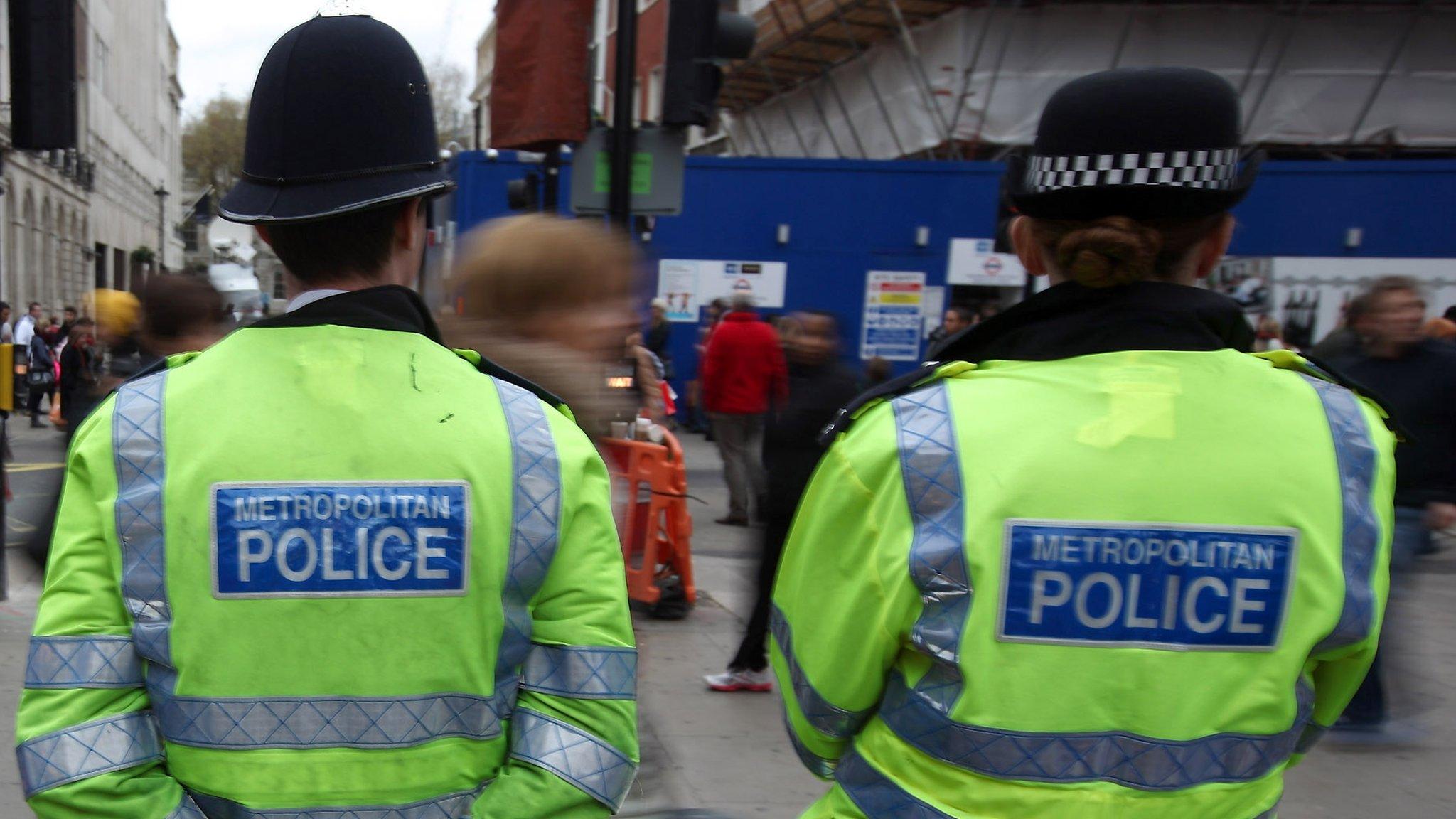Bristol Taser incident: Force to adopt print scanners
- Published
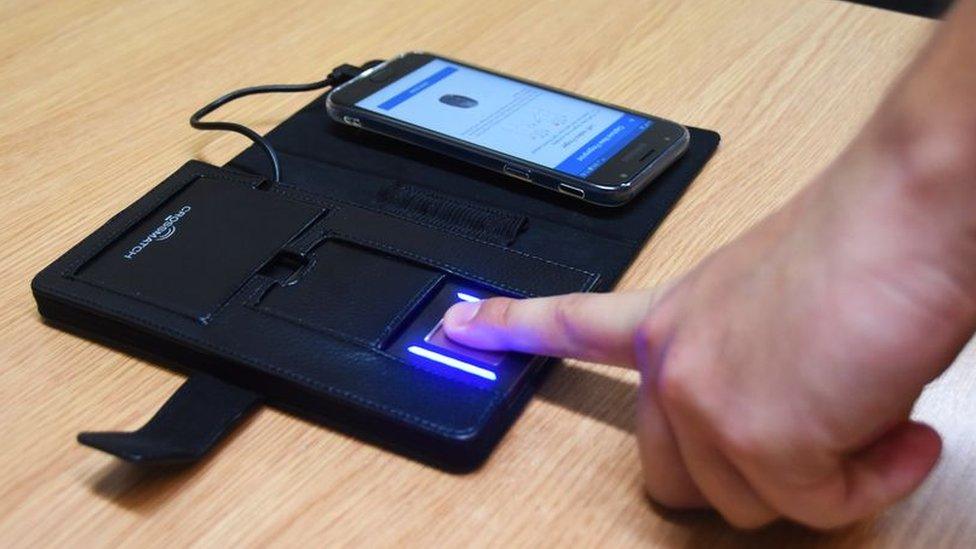
The handheld devices enable officers to to cross-reference prints with national records in seconds.
Police officers in the west of England will be given handheld fingerprint devices to identify suspects following a high-profile mistaken identity case.
Race relations adviser Judah Adunbi was Tasered in the face by Avon and Somerset officer Claire Boddie who mistook him for a wanted man.
PC Boddie was cleared of misconduct but the force was criticised by a scrutiny panel over its handling of the case.
The scanners will be rolled out over the next 18 months, the force said.
Mr Adunbi was stopped in January 2017 by two officers who believed he was Royston MacCalla, who was suspected of a grievous bodily harm (GBH) offence.
He declined to give his name and, after an argument, was hit in the face with a Taser barb fired by PC Claire Boddie.
The incident was captured on the officers' body-worn video cameras, and by a neighbour.
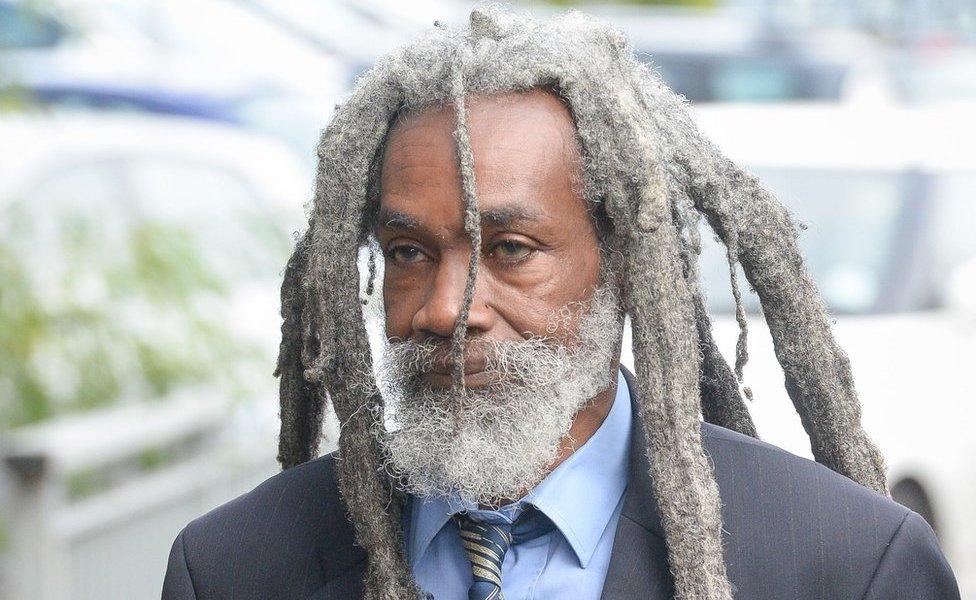
Judah Adunbi was Tasered by police after being mistaken for wanted suspect Mr McCall in January 2017
The scrutiny of police powers panel, set up by the Police and Crime Commissioner Sue Mountstevens, said: "Since the January 2017 Taser incident, the Avon and Somerset Constabulary has taken a number of important initiatives that demonstrate the organisation is serious about learning from this incident and from other such high profile cases."
The Local Democracy Reporting Service (LDRS) said the panel urged the force to review its protocols, procedures and training "so that officers correctly identify individuals who are to be arrested or served with warrants".
Assistant chief constable Stephen Cullen said: "We aim to provide the best possible data, intelligence and information 24/7 to all our officers and staff so they can make informed 'real time' decisions.
"We have made the decision to provide frontline officers with mobile biometric technology to enable real time identification in the field."
The handheld devices enable officers to cross-reference prints with national records in seconds.
- Published19 October 2018
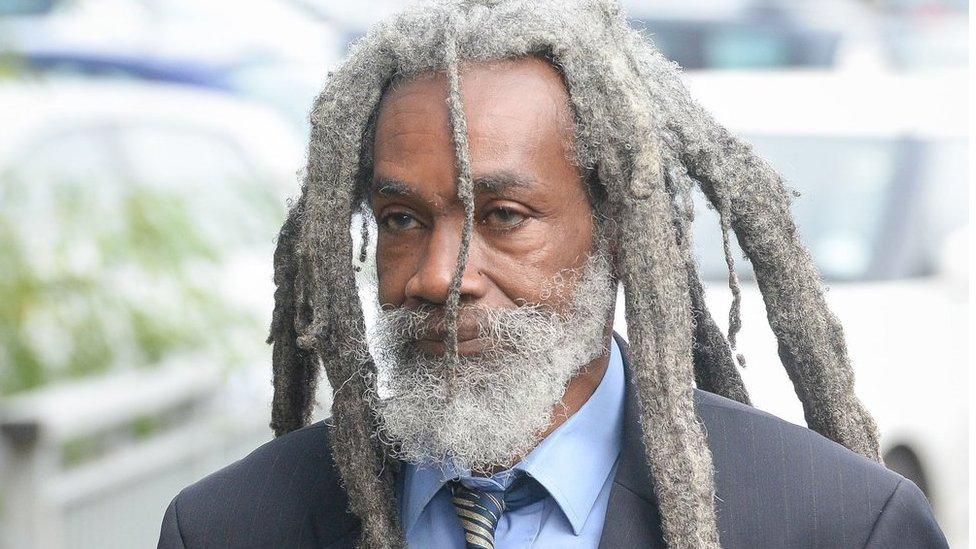
- Published6 September 2018
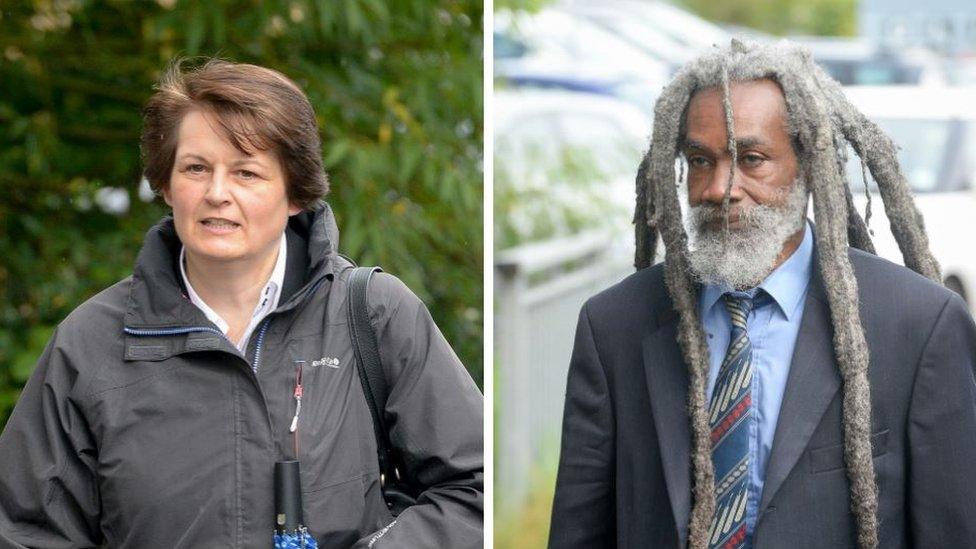
- Published5 September 2018

- Published5 September 2018
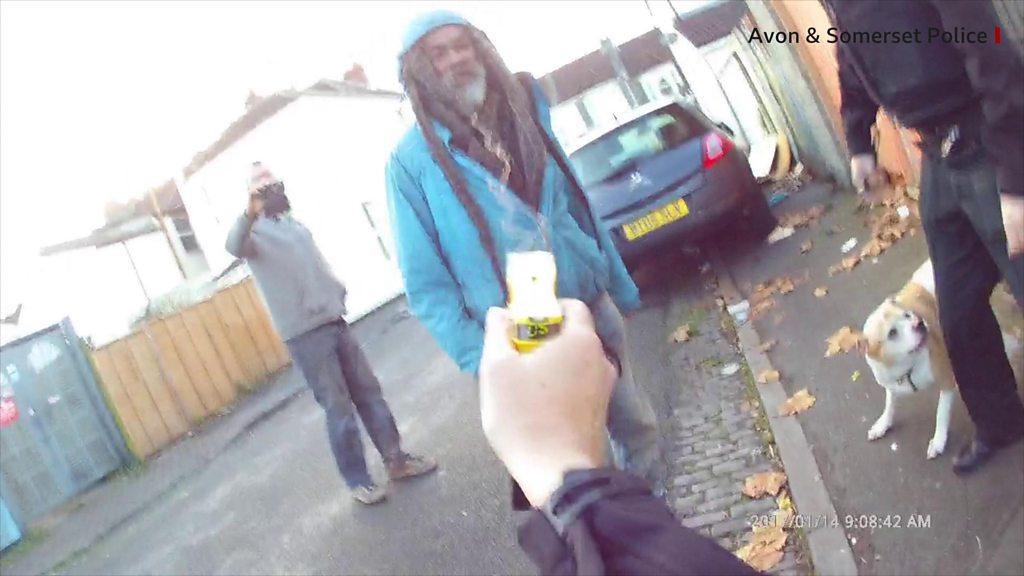
- Published24 May 2012
